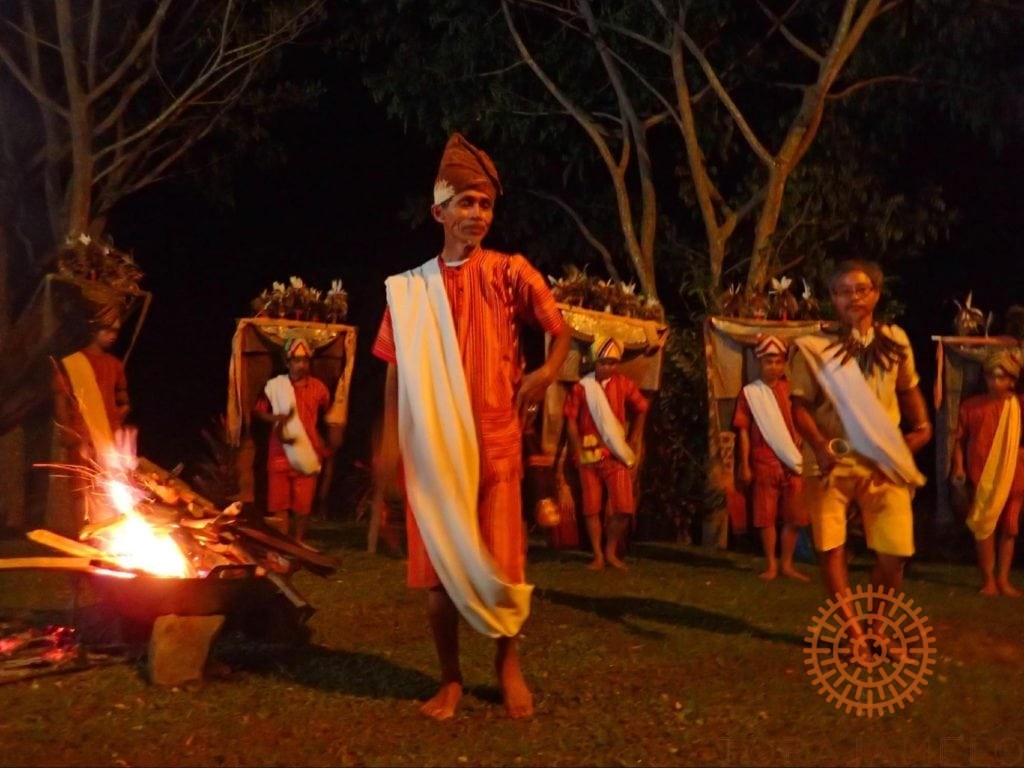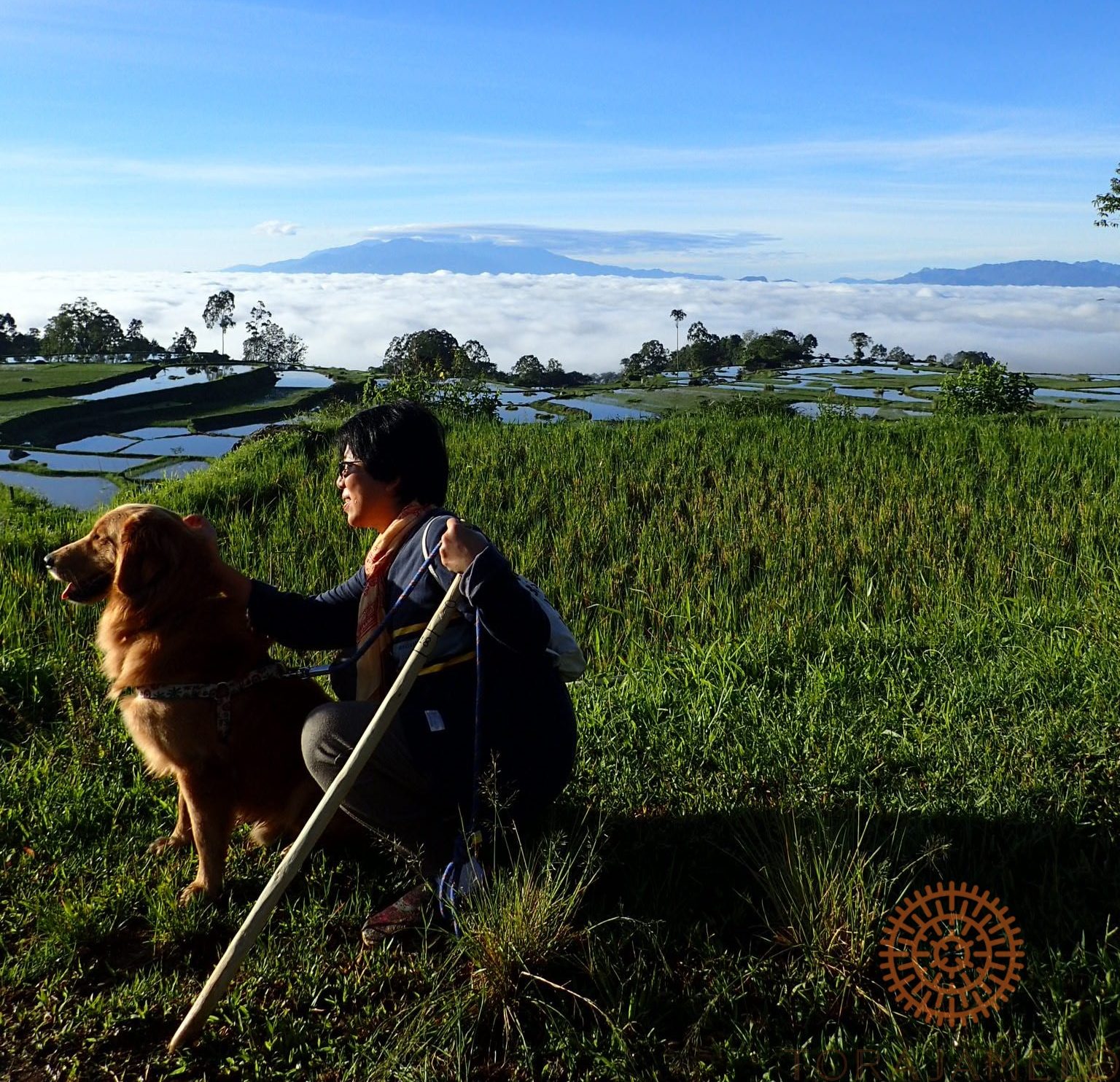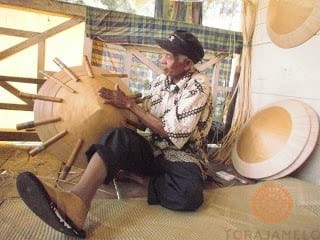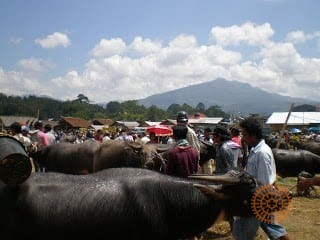
Toraja Funeral Convoy
By : admin | June 28, 2018Many of you may have heard and joined the festive Toraja funeral ceremony that can last for days. However, for non-Torajanese, maybe you have not experienced the long journey home when a Torajanese dies away from their land.
Well, a few months ago, my husband and I were in Makassar where I was asked to share my experience in developing my TORAJAMELO community based business with other women micro-entrepreneurs. We were preparing to fly back to Jakarta, when my husband received a phone call. It was from his brother, telling us that his mother-in-law who was hospitalized in Makassar had just passed away. For Torajanese, it’s very important to attend funerals.So, in a hurry, we cancelled our flight, changed our clothes into an all black garb that we always have in our suitcase and rushed to the hospital. In front of the morgue, a big tent with plastic roof had already been erected. The guests, mostly Torajanese were already there, talking with each other, not unlike a reunion. We prayed in front of the coffin.Then sat together with the other guests. Soon, lunch boxes with rice and meat were distributed. More and more people came. Before we knew it, it was already late afternoon. Cakes and drinks were served.
The oldest son of the deceased made a speech about how he struggled to accept the death of his mother. Then the coffin was put in the van and off we went. We were part of a motorcade of around two dozens of cars, led by a police car with wailing siren. We drove in the night, out of Makassar towards north. After about an hour, suddenly the police car stopped and we all stopped by the road. I stayed in the car. Creeping in the dark were several people giving out dinner boxes of rice and fried chicken! We all sat in our cars and ate. After the men finished their after dinner cigarettes, we moved on.
I fell asleep. Around midnight, I woke up. It was dark. Our car was parked. The driver was nowhere to be seen. My husband was snoring in the front seat. I looked outside, the van with the coffin in it was next to my car. I walked outside and into a small restaurant by the beach. Everybody was there, eating grilled fish and drinking coffee. They were talking and laughing. Amazing!
We drove on, turning north east into the mountains. The police siren was still going strong. I fell asleep once more.At around 3am, the cars stopped again in a little town on a hill. Everybody scrambled out to have coffee. I was too tired and stayed in the car. The van with the coffin was parked in front of my car.
At dawn, I woke up to the sound of revving engines of dozens of motor cycles which joined us at Salubarani, the border into the Toraja land. This is the Toraja way of welcoming home the deceased who will be buried in their ancestor land. As we passed Makale, the first big town in Toraja, dozens of cars followed us into Rantepao, the main town of North Toraja.
At last, after a twelve hours journey, we arrived at the house of the deceased where family members and friends were already waiting. Steaming hot coffee and cakes were served. A short prayer was recited and another speech was delivered. Afterwards, we all had breakfast of rice with chicken or pork cooked in bamboo tubes. It was yummy, but I was so tired, that my face fell on my rice.
From this experience, it’s clear to me, that funeral procession in Toraja is a way of family and friends gathering, as well as celebrating life.



